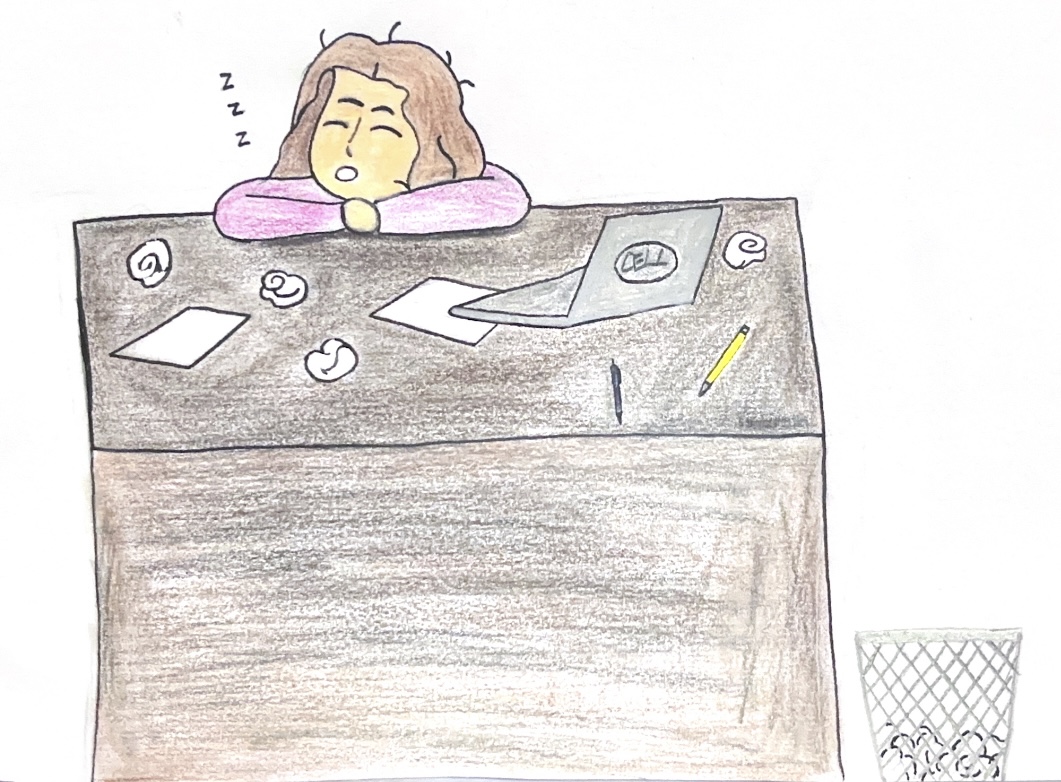Dreaded by teachers and accepted by students, senioritis is a phenomenon that many seniors experience during their last year of high school, especially during the spring semester. During the third and fourth quarters, there is an uptick in the number of seniors feeling the very real symptoms kick in. “Some question the existence of senioritis, but it exists. I am living through it,” senior Andrew Malinka emphasized.
Senioritis is indicated by a lack of motivation in academics or other school-related activities. As many seniors approach the end of their high school careers, they find it increasingly difficult to complete work. “Some seniors have been suffering from this chronic condition for years,” math teacher Maria Mantikas added.“I wish we had a vaccine to prevent it,” she added.
Most seniors have also finished their college and scholarship applications that are normally due by March. Additionally, a majority of students would have received decisions from most of the schools that they applied to, and some may already be committed to a college. The security of being accepted into colleges or having a definitive future plan can make the rest of the year feel like a drag. Furthermore, many students can feel burned out after the stress of application season, so it can be difficult to complete schoolwork afterwards.
Being accepted into college and preparing for the next steps for life after high school is a huge achievement for students. Many have worked hard not just during senior year, but throughout their entire high school careers, whether it be on academics, sports, club involvement, passion projects, and more. “I want college credit; however, senioritis is becoming harder than the classes,” senior Simon Yu noted.
When students determine their post-graduation plans, they may perceive this as an end-goal; they have achieved what they worked so hard for. After fulfilling this accomplishment, high school can be seen as already completed, despite having a couple months left. As a result, seniors may not see the point in continuing to apply that same amount of effort into their commitments now.
Burnout is a common feeling among seniors. All the work and energy put into their future can cause them to feel physical or mental exhaustion. Specifically, after the intense stress and pressure of college applications as well as scholarship applications, seniors may feel drained and find it difficult to continue completing other work. They start to lose interest in activities and academics.
Despite seeming existential or inevitable, senioritis can be overcome by setting goals and staying organized. While a break from the constant business of school and other tasks is necessary to maintain mental health, losing motivation and productivity for an extended period of time can lead to tasks piling up and eventual procrastination or overwhelm. Senioritis becomes increasingly common as graduation approaches; however, seniors can still finish their year out strong as they prepare for summer and their futures.


















